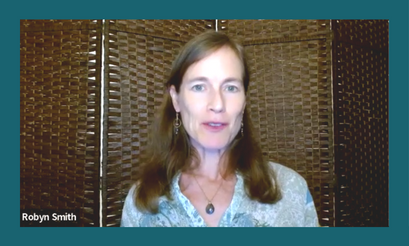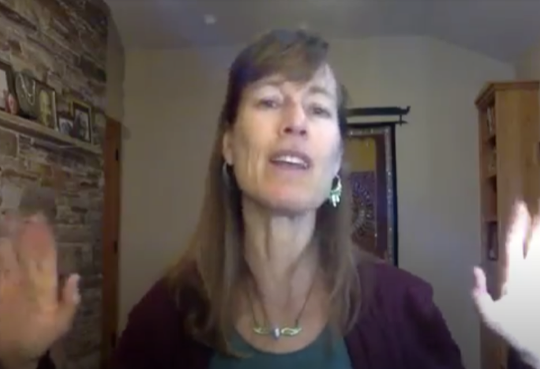Learn 10 simple practices you can implement right away to create more connection, ease and harmony in your intimate relationship.
We are going to look at my top 10 tips to having a healthy relationship and a sustainable long-term relationship. I got inspired to do this recently because my husband and I just celebrated our 17th wedding anniversary. It feels like a big milestone for us. In two months, it'll be 20 years that we've been together.
We're both just so happy with our progress because we didn't know that we would be together this long. We couldn't see into the future very easily. We knew we wanted to say yes to our union. Twenty years later we are going strong and we're having a great time. We feel closer than ever before. Thank goodness because we don't want to feel further than ever before! But we've really had to do our part and do some work to get to this place to heal some areas that were painful and to understand each other. And to work to get over some humps that were difficult.
Like all relationships, it's complex and everybody has their stuff that they come in with. We all have to be willing to bend and flex to make the relationship work.
There is a need to do your part on the inside in order to show up for your partner and the relationship as a whole. Let's look at my top 10 tips
#1 Don’t Sweat the Small Stuff
The first is don't sweat the small stuff. We know this phrase, and it seems basic. And yet it's easy for women to sweat the small stuff. Especially (I hear this from my clients), because women are more particular about things. Things like a certain way to load the dishwasher or picking up after yourself in the bathroom. We have things that we feel more attached to and being done in a certain way. Of course, the problem is that not everybody sees things the same way. So, when we have this kind of attachment, we are likely to get frustrated and disappointed when we're not getting what we want around that.
Not sweating the small stuff is being willing to let it go and let it roll off your back when it's not perfect. When it's not exactly as you’d like. For me that was really important because I could nag. I could point out what's wrong, and I could blame. Then that would just cause more conflict between us. And that's no fun, you don't want to feel that because then it creates distance. And you don't want to feel conflict on a regular basis. It creates more distance and resentment over time. It’s important to “pick your battles”. Choose what feels important enough to bring forward to discuss and what is better to let go of.
#2 Acceptance
The second tip is practicing acceptance for the things you cannot change. This is similar to not sweating the small stuff, but it's not just sweating it and letting it go. It's actually accepting what you can't change. There might be patterns that your partner has, or even beliefs or values that your partner has that are really different from yours. When we have a lot of different values, that can make it really difficult to walk hand in hand forward in life. If it's just a couple, I have found there can be a way to move through that.
One example of this is my husband has had a lot of negative experiences with insurance companies. Like having to work with insurance and they don't pay you back. He was very against getting health insurance and getting life insurance.
That was scary for me for a long time. I would scare myself with the possibility that something could happen to him and I could be left with all the financial responsibilities. Or something could happen to him and we won't be able to afford to take care of him. That would come up on a regular basis.
I would feel anxious, scared and angry. And he wasn't going to change. This is my example of one area where it was really hard for me to accept, but ultimately, it wasn't worth breaking up over. So, I decided if I'm going to be with my husband, I need to accept that he may not have health insurance or life insurance. I have to deal with that, and deal with my own anxiety about that. That was hard, but it was worth it to me. And luckily, he's come a little towards me on that. And now he is covered so, whew!
What have you've learned to accept? What difference? Make it something you can live with, and not something you need to keep arguing and fighting about.
#3 Appreciate
My next tip is to regularly appreciate each other. This is huge because people need appreciation. People need to know that they matter, and they need to be acknowledged for their contribution. It's easy when we're in a longer-term relationship to take each other for granted. We all desire appreciation from each other. You may have heard of the Five Love Languages and how there are different ways you can show appreciation through gifts, through touch, and with words of appreciation. It's important to have a conversation with your partner about how you both like to be appreciated. Find out what works for you both and you can try to meet each other where you want to be. You can feel seen and acknowledged. Most adults and children need that to feel a certain kind of connection, and to feel valued in their relationships. Practice giving your partner appreciation regularly, at least daily, and see what happens.
#4 Regular Intimacy
Another tip is regular intimacy. It can be sexual intimacy, or other types of intimacy. In each relationship we need to sort through how often is enough for each person. What kind of frequency do we need, either with sexual connection or other types of intimacy? Why else are we in a love relationship, if not for
intimacy, in addition to someone to walk side by side with us? It’s really important to do your best and to at least meet in the middle with your partner around those needs for intimacy. It's common in relationships that one person is not satisfied around intimacy. It creates a rift between you. You feel more distant, more frustrated and resentful. Sometimes that is a reason why people have affairs or a reason to break up. So regular intimacy is essential for staying connected and feeling connected. And again, for each person, that type of intimacy may differ.
Sometimes one person needs more cuddles and touch and another person needs more sex. Find that place where you're both getting those needs met.
#5 Frequent Check Ins
My fifth tip is to stay up to date with each other with frequent check ins. Not just the to do list, or the business of the relationship but also, “How are you?”, What's going on in your life?”. Not only how is your day, but how do you feel about that.
So, check in on a more intimate emotional level. Times where you set aside to really get to know each other. “How do you feel about that?”, “What did you think about that”, or "how was that for you?”.
These types of conversations where you're staying up to date with each other are key. Don't let a lot of time pass in between times where you check in. When you are regularly curious and interested in your partner, ideally it will become mutual. Make these times together a priority.
#6 Responsibility
My sixth tip is responsibility. And what I mean by that is taking full responsibility for your part in any issues or problems that arise in the relationship as well as for the results that come from those. So, what might that look like? It might look like recognizing and verbally saying, “you're right, I did that”. You might even apologize, if that feels appropriate.
You might acknowledge how you showed up. For example: “I was angry when I came in and that's why I was picking on you”, or “yeah, I was feeling frustrated, so I had to walk away”. Just naming and taking responsibility for your behavior and not making it your partner's fault is taking responsibility. It's really common, actually, for people to say something like, “well, it's because of you that I acted that way”, or “you made me angry”.
But honestly, no one can make you angry, no one can make you sad. No one can make you act any certain way. They can certainly have influence over how you act and how you feel, but they cannot cause your feelings or behaviors. So, once you're getting in alignment with that, and you get on board with that, that's a game changer. A huge game changer for me and everybody that I've seen. This is an important teaching. It was for me because I was a big blamer and I grew up around blame. So, it was easy to just say, “It's your fault”, and “that's why, because of you”, and no one likes to be blamed. When we do that, we are not taking responsibility.
#7 Feedback
Feedback and feedback. What I mean is being open to feedback, being receptive to hearing, “hey when you said that, I felt upset”, or “hey you're being critical”, or “you're being kind of bitchy right now”, or “you're being so impatient”. They are pointing out something that they are seeing in you and your first response is likely going to be defensiveness. Like, “No, I'm not!”, or “how could you say that?”, or “that's mean!”, in an attempt to attack back.
We talked about defensiveness here recently. When you're open to feedback, you're not getting defensive. Instead of the “attack-back” or defending (and the wall that goes up), you would instead receive that information and really take it in; regardless of if it was an attack or a blame. I'm not saying if you're physically in danger, of course you're going to prevent or protect yourself. If you're not in danger, and if someone's honestly giving you feedback, then you want to do your best to receive it and consciously respond with awareness and consideration.
Like, “oh, thank you for that”, or “Hmm, I don't know why I was acting that way”. Get curious about why you did what you did or why you said what you said. And that's going to create an atmosphere of openness and connection, instead of the disconnection and the distancing that happens when you are being defensive.
#8 Feel Your Emotions
So, another tip is feeling your emotions. So many of us don't have a clear sense of what we're feeling all the time. We haven't been educated around our emotions, and what emotion feels like and how they're different. So, some of this takes some training. This is part of what I teach again, in my Rock Your Relationship class. We look at our emotions and we differentiate them. We look at how they appear in the body and how to express them. For starters, you want to be curious about your emotions and also be willing to express them (again, without blaming someone for causing them).
When we are able to own our emotions like, “Oh, that's mine”, and "that’s not yours”, and “you didn't make it happen”. Also, when we're able to give space for our emotions so we can feel them, allowing it to be okay to be sad, angry or scared, (especially the three most difficult core emotions), then the more intimacy we're going to create. When we shut down our emotions, walk away from our emotions, or judge our emotions as a bad thing, that's like shutting down a core piece of who we are. Emotions are a key component of intimacy. You cannot be intimate if you don't connect with your emotions. Owning, expressing and allowing your emotions is key for healthy connection. Boom! So important!
#9 Humility
Moving on to another of my favorites is having humility. I love humility. It's something that most of us can benefit from cultivating. Humility is like pulling that wall down and just allowing yourself to be seen and vulnerable. It's the ego that puts up the defense and puts up the personality and tries to be right and it’s all the stuff we do that creates distance. Humility allows for that openness to feedback that I was talking about. Humility allows for you to apologize. When you're humble you recognize and verbalize, “You're right, I made a mistake” or “You're right, that wasn't kind of me” or “You know what, I wish I had said that
differently. Let me try that now”.
These are examples of being humble in a relationship. It is so valuable because it's like taking a step towards your partner and letting them know that you want closeness. You want to repair whatever happened; you want harmony. When you're doing the opposite of that, and holding on to “I'm right, and you're wrong”, “we can't fix this”, and “it's all your fault”. All that stuff creates more distance and more conflict. It doesn't get you any closer to what most of us want: intimacy and connection. Even though it's scary, we all want it on the deepest level. And so, these teachings, these practices are going to get you there. You just need to practice. I'll say more about that in a moment.
#10 Trust
But first, the last one that I want to mention is trust. Trust is key. And that one's not simple because trust has to be earned. It's not something that you even should automatically just have, like you trust everybody. Because we've learned not everyone is trust worthy. They have to be worthy of trust, they have to earn our trust. And how do you earn trust? Over time. Experiences over time and repetitive positive experiences.
You follow through with your agreements. You show up when you say you're going to show up. You're kind. Then we start to open a little bit more each time and that's why it's wise to date someone before you marry them. It's wise to build a connection that creates trust so that you can relax. Because without trust, it's pretty hard to relax. Trust is required to feel safe. Safety requires trust however you want to put it.
When we feel safe, we can let our guard down. We can relax and open ourselves up to whatever is available to us. But when we don't feel that safety, we're going to contract. We're going to have our guard up. We're going to be vigilant and be looking around and wondering when's the next shoe going to drop? Who's going
to hurt us? It's so important to develop trust and trust is going to be key for you to have a loving and harmonious and healthy relationship for yourself.
Okay, so let's come back to just the overall bit of a summary for you. The importance of cultivating these qualities is to lead towards greater connection and intimacy in your relationship. And in each relationship, you might have different levels of intimacy, and different kinds of relationships. In general, the more you have these in place, you're going to find more ease in your relationships; more harmony, more joy, more opening to depth and connection.
So, these are things you can practice. If you find that it's hard for you to implement one or more of these, then there's some kind of block. There's some kind of old patterning. There's some kind of fear usually that's in the way of that ability to open in that way. Whether it's with humility or taking responsibility or accepting what is. That's where I want to encourage you to get some support.
That's why I do the work that I do because if it was all this simple, you could just get it out of a book or video, right? It's not that simple because we have our issues that are in the way of this acceptance, of this relaxing into the openness. We have our own issues with trust or humility or responsibility or allowing our feelings. So, it helps to work with someone like me as a relationship coach or a therapist or whoever you're drawn to, who can support helping you with the obstacles that are in the way of your ability to implement these practices.
Right now, my coaching practice is full but I am considering opening space for a couples coaching and that would be in a group format. If you're interested in that, contact me. Put a message below or put yes to couples coaching and I can reach out to you. My vision is to have a small group of couples who I can support, where both parties can come together and learn and practice different techniques and understand one another more and have my support in that. There'll be group coaching involved as well as training and practices. So, if that helps you, definitely put a message below in the comments or reach out to me privately through email or private message. I will put you on the list for when I get that group together.
It's going to be awesome. Alright everybody, thanks for being here and I look forward to seeing you next time. Take care!
Join my Facebook group, the Healthy Relationships Sisterhood for free weekly trainings here: https://www.facebook.com/groups/consciousthrivingrelationships







